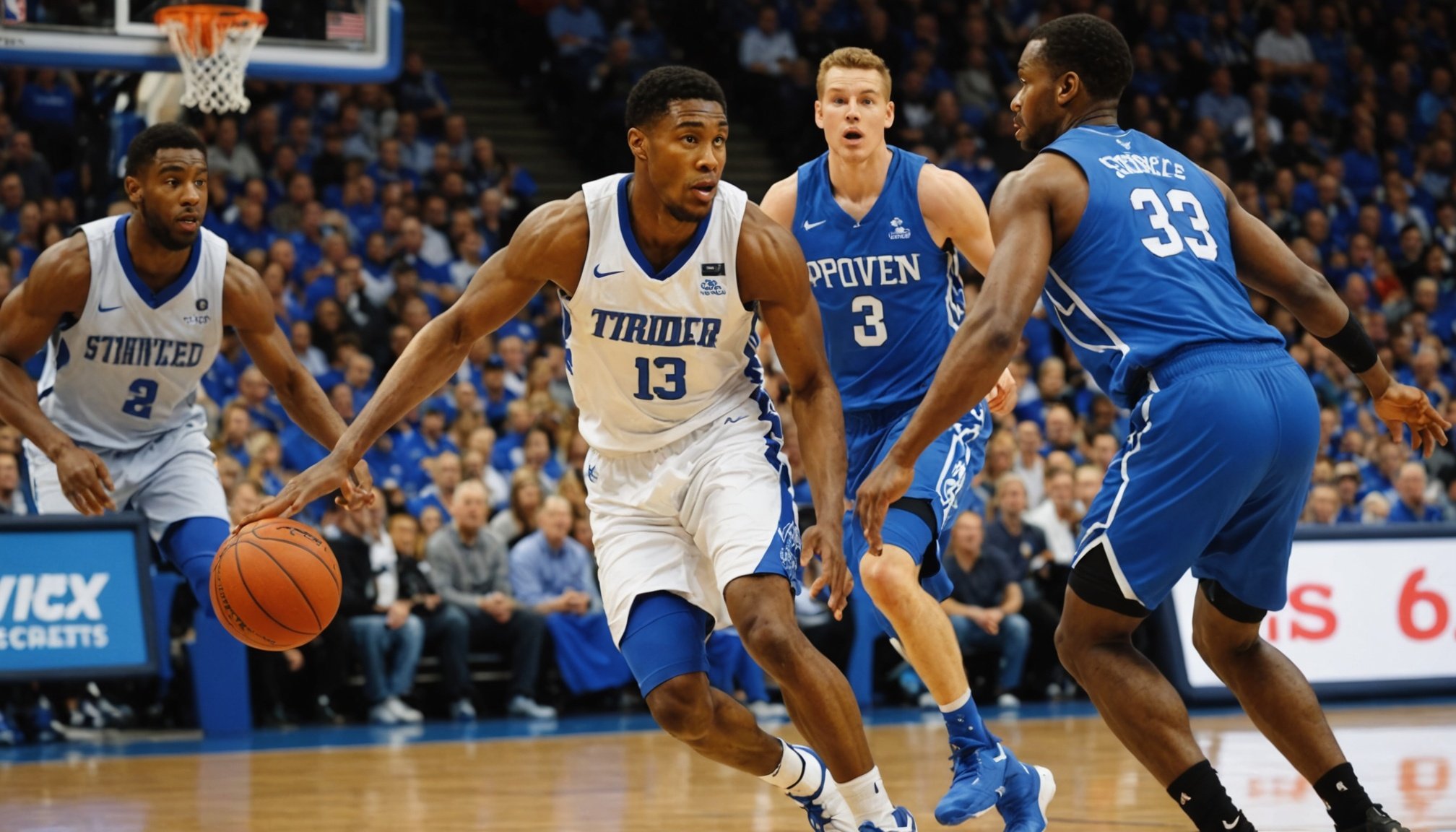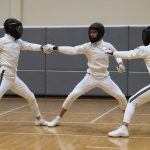Understanding Defensive Reaction Times
Effective defensive skills development begins with understanding the critical role reaction times play in basketball. Reaction time is the interval between recognizing an opponent’s move and responding to it. In a fast-paced game, swift reactions can be the difference between a blocked shot and a missed opportunity.
Factors influencing basketball reaction training are multifaceted. The athlete’s physical condition, including agility and flexibility, can significantly impact reaction speed. Furthermore, cognitive aspects, such as the ability to quickly process game events, are paramount. A well-honed reflexive response not only boosts individual performance but enhances the overall athletic performance of the team.
This might interest you : Accelerate your game: effective techniques for uk basketball athletes to boost speed and reflexes in defensive situations
Training focused on improving reaction times delves into both physical and mental realms. Techniques such as basketball reaction training, involving drills that mimic in-game situations, are essential. These drills often incorporate unpredictable elements, requiring athletes to adapt on the fly, thereby sharpening their reactive capabilities. A well-rounded regimen should also consider neuromuscular coordination, ensuring that body movements become intuitive.
By understanding and refining these components, players can evolve their defensive skills development, resulting in heightened on-court performances and superior match outcomes.
Also to discover : Elevate your vertical leap: the ultimate strength training blueprint for basketball athletes in the uk
Proven Techniques for Enhancing Reaction Times
Enhancing reaction time improvement is not just about moving fast; it incorporates a blend of strategic exercises. Various speed training techniques are integral for athletes seeking to reduce their reaction times in dynamic settings like basketball. Let’s delve into how certain basketball drills can revolutionize performance on the court.
Plyometric Drills
Plyometric training focuses on explosive power, crucial for quick movements and reaction time improvement. These drills harness rapid muscle contract and release, essential in enhancing an athlete’s speed and agility. A typical drill might include box jumps or depth jumps, encouraging athletes to move swiftly off the ground. By incorporating plyometrics routinely, athletes cultivate the explosive movements required for a competitive edge.
Agility Training
Agility enhances body control and reactive speed, pivotal in high-stakes basketball scenarios. Drills using agility ladders can bolster foot coordination, ensuring athletic performance remains fluid and responsive. Implementing these exercises amplifies an athlete’s ability to switch directions or evade opponents swiftly.
Reaction Drills
For comprehensive engagement, incorporating reaction drills is key. Utilizing tools like lights or auditory cues recreates in-game unpredictability, further advancing an athlete’s reflexive responses. Both partner and solo drills are effective here, allowing athletes to refine skills in various scenarios, ensuring readiness for real-world gameplay challenges.
Nutritional and Lifestyle Considerations
The connection between athlete nutrition and reaction time on the basketball court is crucial. Proper nutrition provides the energy necessary for athletes to perform at their peak while supporting recovery. An optimal performance diet rich in carbohydrates replenishes glycogen stores, enhancing stamina during games and practices. Proteins are essential for muscle repair and growth, while fats offer a sustained energy source. To balance these, consider:
- Complex carbohydrates like whole grains and fruits
- Lean proteins such as chicken or fish
- Healthy fats from sources like avocados or nuts
Hydration plays a vital role, preventing fatigue and allowing for quick reflexes. Maintaining electrolyte levels can make a significant difference in athletic performance.
Effective recovery strategies are pivotal for optimal training outcomes. Quality rest and adequate sleep are non-negotiable elements for enhancing reaction time improvement. They allow the body to heal and the mind to process game strategies, ensuring athletes are prepared for the next challenge. Supplementing a good diet with adequate rest helps maintain the physical and cognitive sharpness required for fast-paced basketball scenarios. Proper balance leads to improved speed, decision-making, and defensive response times.
Expert Insights and Testimonials
In the realm of basketball, expert opinions shed light on the nuances of defensive skills development and the importance of reaction time improvement. Coaches emphasize the necessity of versatile training, highlighting the blend of physical drills and mental fortitude as critical components. The integration of speed training techniques and basketball reaction training is paramount for enhancing athletic performance.
Renowned coaches, like John Snow from the Elite Basketball Camp, focus on agility training. Snow notes, “Athletes require adaptability, achieved through structured drills that mirror game dynamics.” This insight aligns with the experiences of athletes who have thrived under similar regimens.
Athlete testimonials provide a personal touch, illustrating the transformative journey of individuals who have adopted these methods. Lisa Carter, a collegiate-level athlete, recounts how incorporating agility ladders and plyometric drills into her routine led to a noticeable improvement in her on-court responsiveness.
Additionally, sports psychologists offer crucial perspectives on mental preparation. They stress the significance of maintaining mental clarity under pressure, an often-overlooked aspect of defensive skills development. This holistic approach, blending physical prowess with mental acuity, underscores the importance of comprehensive training strategies.
Practical Implementation in Training Regimens
To effectively integrate defensive skills development into a training regimen, creating a structured training schedule is key. A well-planned weekly routine not only enhances athletic performance but also ensures athletes are consistently improving.
Begin by allocating specific days for distinct aspects of basketball reaction training. For instance, dedicate certain sessions to exercises like agility ladder drills and plyometric workouts. This targeted approach helps in honing reaction-time-specific skills while balancing overall training demands.
Monitoring progress is crucial to any regimented program. Utilize video recordings or performance tracking apps to evaluate an athlete’s responsiveness and agility improvements over time. Adjust training techniques based on these assessments, ensuring the regimen remains challenging yet attainable.
It’s beneficial to craft session plans that incorporate a mix of exercises. Consider:
- Warm-ups: Start with dynamic stretches to improve flexibility.
- Core training: Integrate drills focusing on reactive speed and body control.
- Cooldowns: Conclude with slower-paced activities to aid recovery.
This holistic, progressive approach to training not only refines defensive skills but also keeps athletes engaged. By regularly reassessing and adapting methods, coaches can foster enduring skill development and performance enhancement.
Resources for Further Learning
For athletes and coaches committed to excelling in defensive skills development and honing basketball reaction training, a variety of resources can provide valuable insights.
Books like “Basketball Skills & Drills” offer comprehensive guides on enhancing athletic performance. The detailed explanations and tips within these pages help athletes understand the practical application of techniques discussed in previous sections. Alongside books, articles in sports journals often provide the latest research on reaction time improvement strategies. These resources can equip readers with cutting-edge knowledge essential for competitive gameplay.
Online platforms are treasure troves of training resources and coaching tools. Websites dedicated to basketball offer interactive modules and e-courses designed by experienced coaches. For an immersive learning experience, video demonstrations and tutorials can be particularly beneficial. They visually break down complex drills, ensuring both coaches and athletes can follow along and perfect their techniques at home.
Workshops and webinars provide live, interactive sessions where participants can learn directly from experts. Forums and online communities also foster the exchange of ideas and experiences, supporting continuous learning and development in defensive basketball strategies. Embracing these learning resources aids long-term skill growth and performance excellence.











